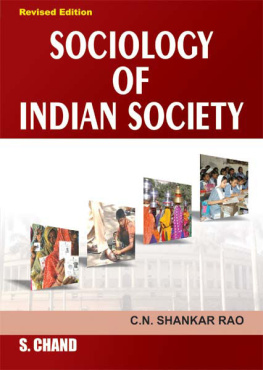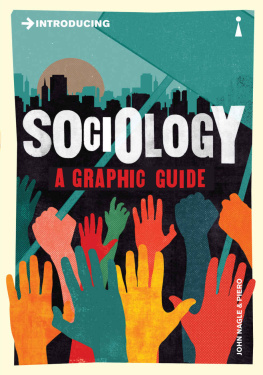SOCIOLOGY
AND SOCIETY
OF JAPAN
Japanese Studies
General Editor: Yoshio Sugimoto
Images of Japanese Society: Ross E. Mouer and Yoshio Sugimoto
An Intellectual History of Wartime Japan: Shunsuke Tsurumi
A Cultural History of Postwar Japan: Shunsuke Tsurumi
Beyond Computopia: Tessa Morris-Suzuki
Constructs for Understanding Japan: Yoshio Sugimoto and Ross E. Mouer
Japanese Models of Conflict Resoution: S. N. Eisenstadt and Eyal Ben-Ari
Changing Japanese Suburbia: Eyal Ben-Ari
The Rise of the Japanese Corporate System: Koji Matsumoto
Science, Technology and Society in Postwar Japan: Shigeru Nakayama
Group Psychology of the Japanese in Wartime: Toshio Iritani
Enterprise Unionism in Japan: Hirosuke Kawanishi
Social Psychology of Modern Japan: Munesuke Mita
The Origin of Ethnography in Japan: Minoru Kawada
Social Stratification in Contemporary Japan: Kenji Kosaka
Sociology and Society of Japan: Nozomu Kawamura
SOCIOLOGY
AND SOCIETY
OF JAPAN
Nozomu Kawamura
First published in 1994 by
Kegan Paul International
This edition first published in 2011 by
Routledge
2 Park Square, Milton Park, Abingdon, Oxon, OX14 4RN
Simultaneously published in the USA and Canada
by Routledge
711 Third Avenue, New York, NY 10017
Routledge is an imprint of the Taylor & Francis Group, an informa business
Nozomu Kawamura 1994
All rights reserved. No part of this book may be reprinted or reproduced or utilised in any form or by any electronic, mechanical, or other means, now known or hereafter invented, including photocopying and recording, or in any information storage or retrieval system, without permission in writing from the publishers.
British Library Cataloguing in Publication Data
A catalogue record for this book is available from the British Library
ISBN 10: 0-7103-0468-4 (hbk)
ISBN 13: 978-0-7103-0468-1 (hbk)
Publishers Note
The publisher has gone to great lengths to ensure the quality of this reprint but points out that some imperfections in the original copies may be apparent. The publisher has made every effort to contact original copyright holders and would welcome correspondence from those they have been unable to trace.
Contents
Tables
Charts
I was completing this book in May 1992, at the time of the Los Angeles riots in the U.S. The Japanese press regarded these riots as legitimate anger at the verdict of an all-white jury which had exonerated four white policemen of guilt in their violent assault on a black man. However, there would be no justice or order if the legitimate rule of law were denied. A contradiction of modern society is clearly shown in this case. Is it truly possible to establish the universal rule of law in a multi-ethnic state? Is not the concept of a single state itself contradicted?
The state or political society is an abstract whole an abstract person (as it were), i.e. a sovereign. The concept of state is quite different from that of nation, folk, race or ethnic group. The decisions of political society are made by majority. Therefore it is imperative for political society to have an apparatus to enforce the will of the majority. In contrast, the autonomy of a community is to be achieved through consensus or cultural integration. In this context the existence of household and local community in Japan and the communal tradition itself affords a useful perspective for Japanese on the evaluation of post-modern society.
In the field of economics, the act of exchange in a market can reduce various concrete forms of useful labour to abstract human labour of a certain quality. Exchange values of commodities are objective measures of average labour time. Thus modern social sciences, of which economics is the king, may defend capitalist society. Reducing concrete societies to a capitalist society, and different individuals to commodity owners (the commodity of the labourer being his power of labour), are both useful methods for examining modern Western societies, which have the common cultural traits of the Judaeo-Christian tradition.
But other methods were needed for comparative studies of Western societies and Japanese society. In Japan communal relationships do not break down, but co-exist with individualistic relationships. For example, a man who buys wholesale and sells at retail calculates rationally to make a profit. But while he can be a green-grocer or fishmonger, he is also the head of a household. His business is a family business. The economic unit is not the individual but the household. Economics does not apply within the family.
Likewise, for example, the ownership of premises in a suburb of Tokyo by a man of the new middle class, is not solely his individual concern. He cannot sell them on his own initiative. Rather that decision is one for the household to make, because the premises (like a grave) are inseparable from the household, and the property should be inherited by one of his sons, usually the eldest. This principle operates in the same way in an enterprise. For the Japanese, an enterprise is a perpetuated whole with which the individuals involved in it both capitalists and workers must identify. A Japanese manager of a Japanese company abroad would be surprised when his secretary stops typing at five oclock leaving a letter unfinished, when she could have completed it by typing only two more lines.
The Japanese have different spatiotemporal conceptions from Western people. This is shown clearly in drama. In the Japanese puppet play, bunraku, puppet operators, usually three, appear on-stage to operate the puppets. In a Western puppet play, the puppeteer never appears on-stage. In the West the stage is an inviolate space created and controlled (as it were) by God. So it should appear that no one but God has dominion over the puppet-people on-stage. Thus, at the cost of unnatural movements of the puppet, the unnatural presence of the puppeteers on-stage is avoided. In Japan all three operators used to wear black costumes and black veils. But now the main operator wears a formal stage costume and takes a role on-stage of one who inspires spirit into a puppet. In the world of Christianity this is absolutely impossible.
In Western drama the space and time of the stage are no different from those of ordinary life. Both are absolute space and time created by God. One step for the actor is no different from one step for the ordinary man in everyday life. So we can understand the meanings of actions on-stage. But in the Japanese n play, the world on the stage is quite different from, for example, the scientific world with which sociologists are expected to deal. In n, one step on the stage may symbolize thousands of miles. A main player, site, plays various roles. He plays at one moment the role of the wife, and at the next the role of the husband; or he plays the man who died two hundred years ago, and next moment his ghost in the present.
So there arises the problem of how spectators understand the significance of the gestures of a site. N itself is a reification of the communal spirit by performers. The phenomena on the stage are aspects of the communal spirit. Thus each spectator can understand the significance of the performers on the stage by reference to the mind of his own community.









